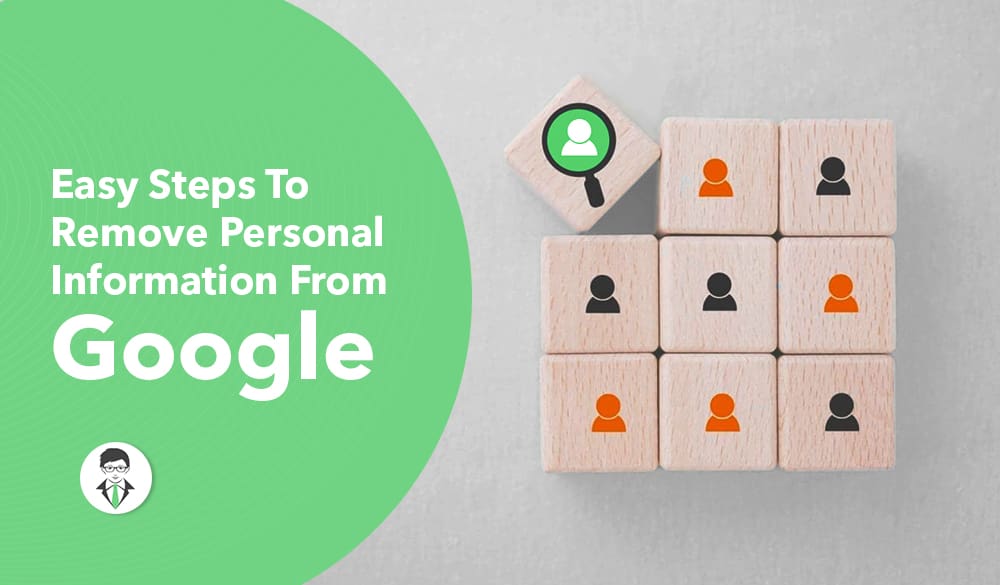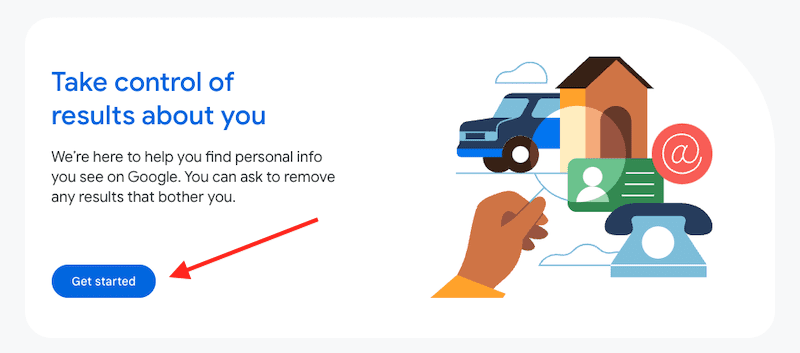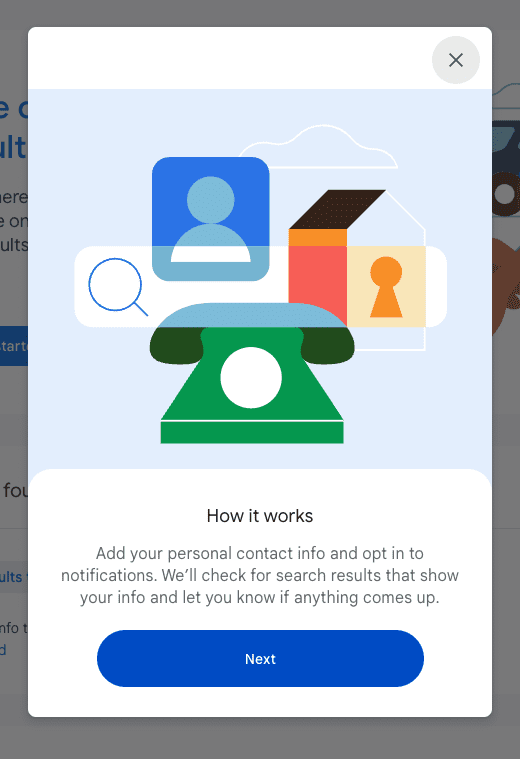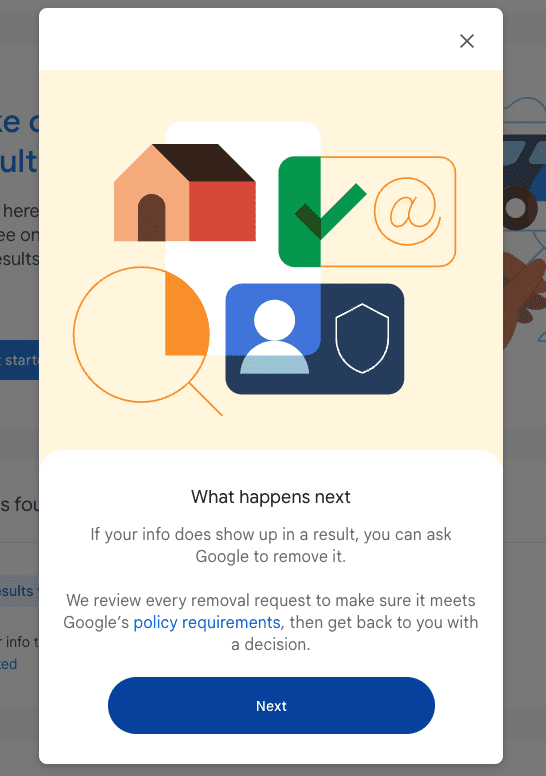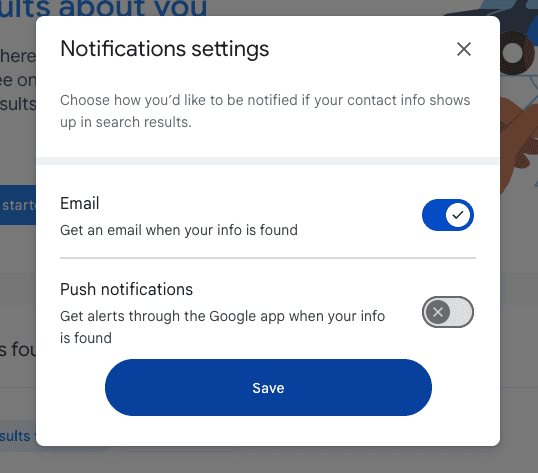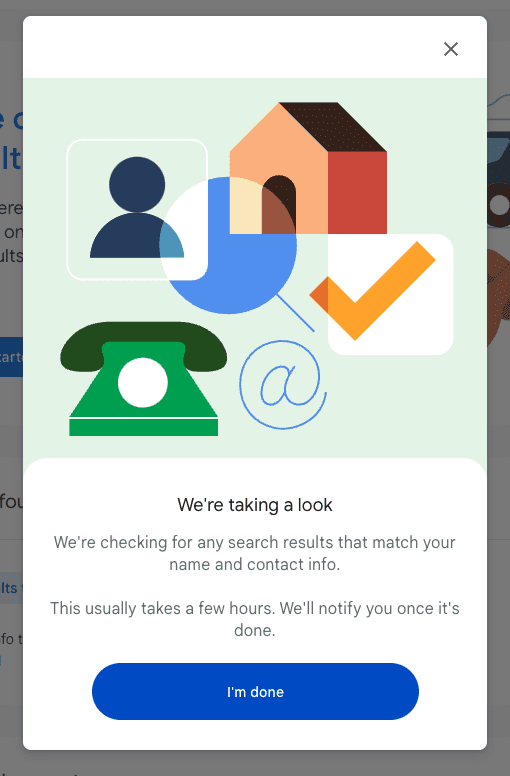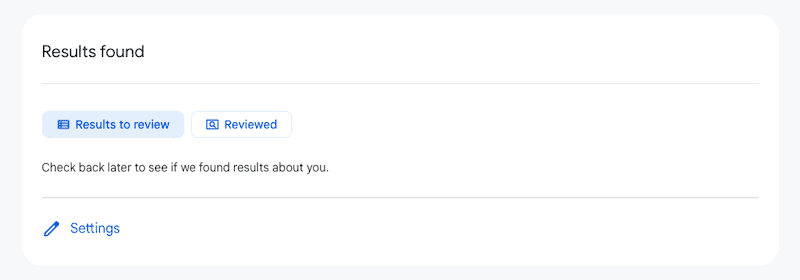In this article, we’ll discuss how to remove personal information from Google Search results in an effort to protect and rebuild your personal or business reputation.
There are times when you want your personally identifiable information to be public online. For example, if you’re a consultant and want potential clients to get in touch with you, you’ll want your name, phone number and email address to be discoverable.
Other times, though, you want to protect that information. And even if you’re comfortable having your personal contact info on some sites, there may be certain web pages that you don’t want to appear on.
Google makes it possible to find, review and request removal of your personal contact information. Let’s go over your options.
Should You Remove Your Personal Information From Google?
While there are good reasons to have your personal information available for some purposes and on some websites, in general, most people don’t want their full name, home address and work address, phone number, and personal email address out there for anybody to find.
Having so much personally identifiable info online can create safety issues, both in person and on the internet. When someone can use Google Search to look for your name and then have several details show up in seconds, it can feel threatening. Even if nothing negative comes of it, you’ll still likely want to remove that data so that it’s not so readily available on the internet.
Here’s another consideration: That personal information may be on more than just public record websites, like contact directories. If your name, phone number, physical address, etc. show up on a site with explicit content, that could affect things like your ability to get a job, meet a partner online or make a good impression with your business.
In general, it’s smart to know where your personal contact info is online so that you can opt to remove information about you if it’s either unnecessary or harmful.
Finding Your Personal Info in Results About You
The Google search engine has a Results About You feature that lets you input your personal contact information and then set up alerts in cases it shows up in results. Here’s how to get that set up and submit removal requests.
Signing Up for Results About You
Go to the Results About You page and click the Get Started button.
Next, you’ll see a window that explains how Results About You works. It says that once you add your personally identifiable information and sign up for notifications, you’ll be alerted to any search results that include that info.
The next window explains that if you are alerted to your personally identifiable information in Google Search results, you can put in a removal request.
In the next window, you’ll enter your personally identifiable information, including:
- Full name
- Address
- Phone number
Then you’ll click a box that confirms the contact information belongs to you. You’ll then make your notification selections. You can opt in to email and/or push notification alerts. When you’re finished, click Save.
Once you’ve done that, Google will check for search results that include the info you entered. You’ll get a notification once the process is done.
You can review results in the Results Found section of the Results About You page.
Reviewing Results About You From Google
If Google finds a search results page that includes your personal information, you can select it to learn more. For example, you’ll be able to see the website the personal information appears on. If you don’t want this information available in Google Search results, you can select the Request To Remove checkbox. You can select one or more results at a time.
(If you don’t want to request removal, you can click Mark as Reviewed next to the result.)
You’ll get emails from Google to confirm the removal request and with status updates as your request is reviewed. You can also check the status of your requests in the Removal Requests section of the Results About You page.
Requesting Removal Without Logging In
If you don’t want to log in to Google to access the Results About You page, there’s another option. You can go to the Google content removal form to submit your request. (You’ll still want to access that page to keep track of your requests after you’ve made them, though.)
First, you’ll make a selection for why you’re asking the Google search engine to remove information, and you’ll select your country of residence:
If you select the Content contains your personal information option, on the next page, you’ll select the type of information you want removed. You can only select one reason at a time, so if you need content removed for multiple reasons, you’ll need to make multiple requests.
It’s important to enter your information as it appears on the web page in question. For example, if the page includes your nickname, that’s the name you want to enter.
Depending on the selection you choose, you may have to answer additional questions to move forward. Once you’re done, you should receive a confirmation email within a few hours. Then, you can monitor your requests on the Results About You page.
Removing Content for Legal Issues
Note that this isn’t where you’ll go if there’s a court order, copyright or trademark infringement and that’s why you want the information removed. In those cases, you’ll submit your request through the Legal Help Center. Google says you can submit your request in both places — via the content removal form and the Legal Help Center — but you still need to make a legal request in the case of a legal issue. In other words, only submitting the removal request through the content removal form won’t be enough.
Can I Remove Personal Information From Google Search?
Google won’t take any and all personal information down simply because you request it. There’s some personal info that Google considers valuable, such as information on:
- Business websites
- Educational websites
- Government websites
- Online newspapers
In this case, there won’t be an option to remove the result.
Once you submit a request for Google to remove your personal information, Google will check if it meets the policy requirements. Those include:
- The contact information is your contact info.
- You don’t have control over the information. In other words, you can’t remove it yourself.
- Whether or not the information is valuable to the public.
Google won’t remove personal information that’s valuable to the public, such as information in a news article.
Protect Your Personal Information and Online Reputation With ORM Services
At NetReputation, we work with clients to report cases of harmful content appearing online, monitor personal or business mentions, and rebuild your reputation so you can have a brighter future. While you can go through the process of asking Google to remove your personal information, you may need more help when it comes to other types of negative content about you online.
Highly personal content like credit card numbers, your Social Security number, bank account information, or explicit content can cause direct harm to your personal and professional life and put you at risk of identity theft. When your personal contact info shows up on background check sites, anybody can find out about your public record, including criminal history, court proceedings and more. They may even be able to find out your marital status, family members’ names, how much money you make, etc.
We understand that having so much highly personal content online is scary and probably makes you uncomfortable. Asking Google to take down personal contact info is just a start when it comes to protecting your online reputation. You can also go directly to those publishers to ask them to remove the content — but that can take time, specialized tools and a lot of patience.
If you’re in need of help to manage your online info and protect your online reputation, get in touch with NetReputation. Contact us today at 844-461-3632 or by filling out the form below to speak with one of our experts.
